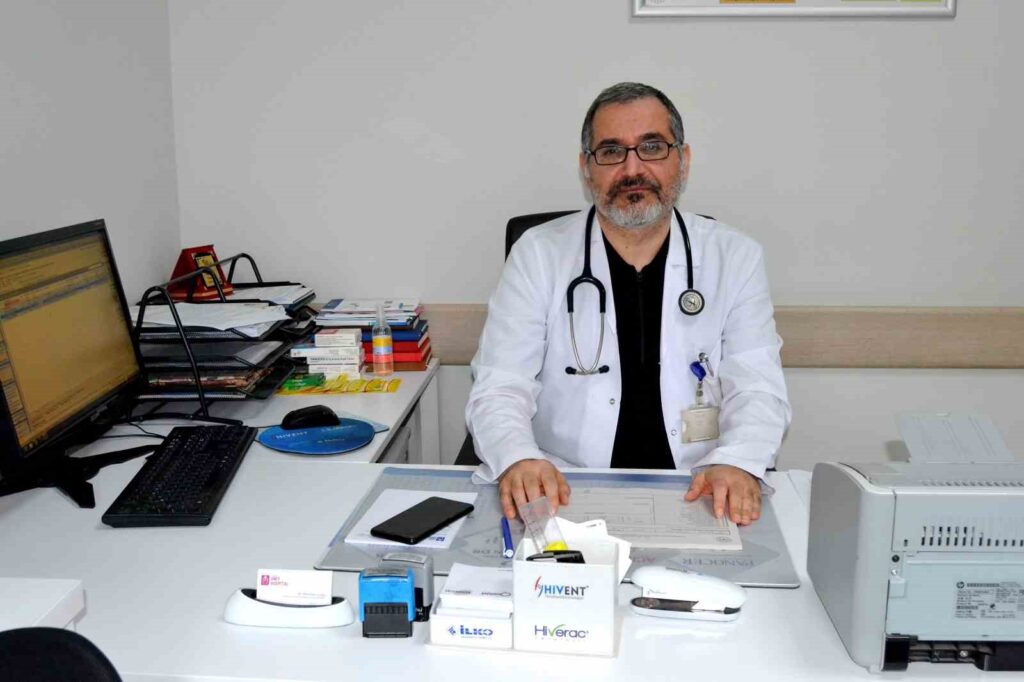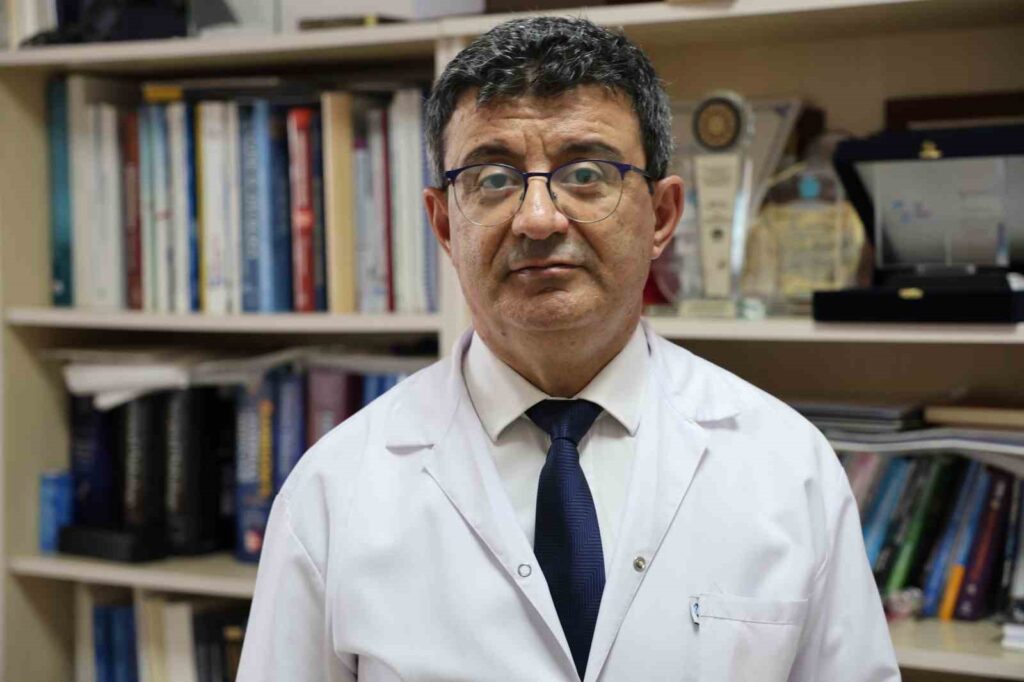Pay attention to these to avoid diarrhea
Dr. Mehmet Uluğ, a specialist in Infectious Diseases and Clinical Microbiology at Özel Ümit Batıkent Hospital, explained the precautions to take in order to avoid diarrhea during the summer months. He emphasized the importance of being very careful about cleanliness, especially with the increase in thirst during the summer.

Dr. Mehmet Uluğ, an Infectious Diseases and Clinical Microbiology Specialist at Private Ümit Batıkent Hospital, explained what precautions should be taken to avoid diarrhea during the summer months.
Dr. Uluğ stated that with the increased thirst during the summer months, the consumption of water rises without paying much attention to whether it is clean or not, and therefore intestinal infections are seen more frequently. He noted that the increased temperature also causes food to spoil more quickly, which is another reason for infections, saying:
“During the summer months, those who picnic in the countryside generally prefer to use spring water or tap water found in the area as drinking water. However, if this water is contaminated with human or animal feces or waste, it pollutes the water. This contamination is not visible to the naked eye. The microbes in the water that can cause diseases such as intestinal infections are not visible. Even if not used as drinking water, fruits washed with dirty water can also be contaminated with microbes. Especially foods that are eaten raw and unpeeled pose a greater risk. Ice made from water used in this way is even more dangerous.”
It can become toxic when left outside
Dr. Mehmet Uluğ emphasized that foods, even if cooked, must always be stored in the refrigerator during the summer months. He stated, “Foods that are left out in the heat and especially those sold openly can become ‘toxic’ due to not only the flies that land on them carrying germs but also because microbes can reproduce more easily on protein-rich foods. In this case, ‘the smell of the food’ is essentially nothing more than the excessive growth of microbes on that food. Foods containing milk and mayonnaise, meat, and cream carry a significant risk in this regard.”
Attention to what to consume
Dr. Mehmet Uluğ explained which foods should be paid attention to during the summer months:
“The foods that require the most attention are those that are displayed openly and not stored in the refrigerator. Foods such as lahmacun sold openly, minced meat, milk, yogurt, clotted cream, and cream that are not stored in the refrigerator are dangerous. First and foremost, attention should be paid to the freshness of the foods and to ensure that the expiration date on packaged foods has not passed. Another point to be cautious about is power outages. Due to power outages, foods that need to be stored cold may ‘warm up’ for a while, leading to the reproduction of microbes that are present in small numbers and would not harm health. This is particularly important for ready-made ice creams. Ice creams sold openly should also be purchased only from controlled and safe establishments.
If diarrhea is bloody
Stating that diarrhea is the most important symptom in general for intestinal infections, Clinical Microbiology Specialist Dr. Mehmet Uluğ said, “Because the intestines try to expel the microbes that come in with food and drink. Sometimes the illness starts with nausea and vomiting before diarrhea occurs.” Dr. Uluğ mentioned that diarrhea can be bloody or non-bloody and explained the issue as follows:
“If the microbes do not invade the intestinal wall and only cause illness through toxins, diarrhea is characterized by a large volume of watery stools. There is no pus or blood in the stool. The fever is not high. There may be little or no abdominal pain. If the microbes taken in with food and drink invade the intestinal wall, it can lead to bleeding. The classic example of this is dysentery, commonly known as ‘bloody diarrhea.’ The stool is bloody and purulent. Generally, the patient has a fever and abdominal pain. The frequency of bowel movements is high, but the amount is low.
Drinking only water does not meet fluid needs
Dr. Mehmet Uluğ pointed out that not replacing the salts and fluids lost with diarrhea can lead to serious problems, stating, “Fluid loss is more dangerous in children and the elderly. The blood pressure of a patient who loses fluids and salts drops, and they become lethargic. If fluid replacement is insufficient, as in the case of cholera, renal failure can develop, and the patient may die.” He emphasized that in the case of diarrhea, the first step is to increase fluid intake, saying, “There is only one treatment for diarrhea: replacing the lost fluids. However, the lost fluid is not just water. Along with water, vital salts known as ‘electrolytes’ such as sodium, potassium, chloride, and bicarbonate are also lost. Therefore, just drinking water does not meet the fluid needs lost with diarrhea. The fluid consumed must also contain these electrolytes. Tea and coffee do not contain these electrolytes, but soft drinks can be recommended for the treatment of diarrhea because they contain electrolytes and sugar. Dr. Uluğ stated that patients who cannot take fluids orally due to nausea and/or vomiting should be given serum through an intravenous line without delay, saying, “Serums that are only salty or only sugary are insufficient in treatment. The serums given must contain enough electrolytes and especially bicarbonate, just like the fluids taken orally.”
When to seek hospital treatment?
Dr. Uluğ emphasized that one should never try to stop diarrhea during treatment, stating the following:
“Diarrhea is a protective mechanism to expel the microbes that have entered the intestines. Especially in the presence of bloody and purulent diarrhea, antidiarrheal medications should never be used. In cases of watery diarrhea that do not contain blood or pus but lead to excessive fluid loss, antidiarrheal medications can be given to prevent further fluid loss, but this decision should be made by a physician. If fluid loss cannot be compensated orally, and the patient cannot take fluids orally due to nausea, vomiting, or severe loss of appetite, it is essential to seek hospital treatment.”







